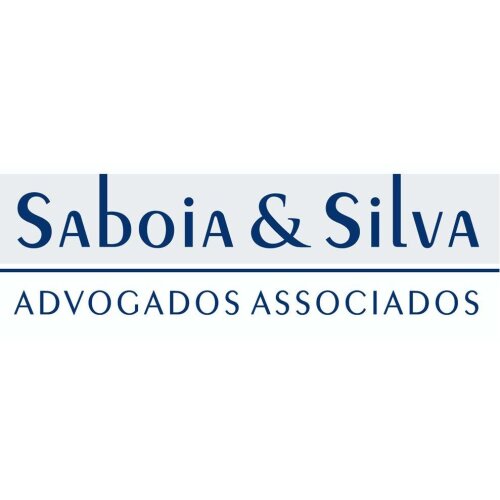Best Debt Capital Markets Lawyers in Brazil
Share your needs with us, get contacted by law firms.
Free. Takes 2 min.
Or refine your search by selecting a city:
List of the best lawyers in Brazil
About Debt Capital Markets Law in Brazil
Debt Capital Markets (DCM) in Brazil refer to the segment of financial markets where companies, financial institutions, and even government entities raise funds through the issuance of debt securities such as bonds, debentures, and commercial papers. These instruments are crucial for financing investments, working capital, and refinancing existing obligations. The Brazilian DCM is governed by a set of complex regulations to ensure transparency, investor protection, and proper functioning of the market. The laws and regulatory bodies overseeing this sector continually adapt to the dynamic corporate and legal environment of the country.
Why You May Need a Lawyer
Navigating Brazil's Debt Capital Markets involves intricate legal requirements and significant financial stakes. You may need a lawyer specializing in DCM in situations such as:
- Structuring and issuing corporate debt securities
- Drafting, negotiating, and reviewing issuance documents
- Ensuring compliance with local laws, market practices, and the rules of regulatory bodies
- Representing issuers, underwriters, or investors during transactions
- Addressing regulatory or litigation issues related to debt securities
- Advising foreign participants seeking to access Brazil's capital markets
- Providing legal opinions for transaction validity and risk assessment
- Implementing liability management and debt restructuring strategies
In these circumstances, legal expertise helps minimize risks, ensures regulatory compliance, and facilitates successful issuance or investment.
Local Laws Overview
The Brazilian Debt Capital Markets are primarily governed by specific local laws and regulations. Key aspects include:
- Brazilian Corporation Law (Law No 6,404) governs corporate debt securities issuance by companies.
- Securities Law (Law No 6,385) and regulations from the Brazilian Securities and Exchange Commission (CVM) establish registration, disclosure, and reporting requirements for public offerings.
- CVM Instructions lay down detailed rules for public offerings (such as CVM Instruction 400 for public offerings and CVM Instruction 476 for restricted offerings).
- The Central Bank of Brazil regulates certain types of financial institutions and their participation in DCM transactions.
- Tax regulation affects the structuring of instruments, as specific incentives or exemptions may apply to qualifying investments.
- Foreign investors must comply with additional rules, including registration with the Central Bank and reporting under the Brazilian Financial and Capital Markets System (Sistema Financeiro Nacional).
Companies and investors must also conform to anti-money laundering, anti-corruption, and corporate governance requirements.
Frequently Asked Questions
What are the main types of debt securities issued in Brazil?
The most common types are debentures (corporate bonds), promissory notes, agribusiness receivables certificates (CRA), real estate receivables certificates (CRI), and government bonds.
Do all debt offerings in Brazil require CVM registration?
No. Public offerings typically require CVM registration under Instruction 400, but certain private or restricted offerings may qualify for simplified procedures under Instruction 476, which is limited to qualified investors.
Can foreign investors participate in the Brazilian Debt Capital Markets?
Yes. Foreign investors can participate, but they must follow specific registration and reporting requirements, especially regarding capital inflows and taxation.
What are the main risks for investors in Brazilian debt instruments?
Key risks include credit risk, market risk, interest rate fluctuations, currency exchange risk (for foreign investors), and potential liquidity challenges.
How are debt security issuances structured in Brazil?
Issuances involve several steps: engagement of financial institutions, preparation of legal documents, due diligence, regulatory filings, and coordination with intermediaries like bookrunners and fiduciary agents.
What is the typical role of a legal advisor in DCM transactions?
Lawyers draft and review transaction documentation, ensure regulatory compliance, provide legal opinions, manage disclosures, and assist in negotiations among stakeholders.
Are there tax benefits for investing in Brazilian debt securities?
Certain debt instruments, such as infrastructure debentures, offer tax exemptions or reductions for eligible investors. The tax regime varies depending on the type of investor and security.
What disclosures are issuers required to make?
Issuers must publish detailed information about their financial status, risk factors, the nature of the securities offered, use of proceeds, and ongoing material events as required by CVM regulations.
What happens if an issuer defaults?
In case of default, the terms of the issuance and local law determine investor remedies, which may include acceleration of the debt, enforcement of guarantees, or restructuring. The fiduciary agent typically represents investor interests in such scenarios.
Is it possible to restructure or repurchase debt securities?
Yes. Companies may engage in liability management, such as tender offers, exchanges, or buybacks, under certain conditions and with proper legal and regulatory compliance.
Additional Resources
- Brazilian Securities and Exchange Commission (CVM) - regulatory guidance and public databases
- Central Bank of Brazil - information on foreign investment and banking regulations
- Brazilian Financial and Capital Markets Association (ANBIMA) - industry statistics and best practices
- Brazilian Bar Association (OAB) - directory of qualified lawyers
- Chambers of commerce and trade investment promotion agencies for sector-specific insights
- Major law firms with DCM expertise for publications and legal updates
Next Steps
If you are considering participating in or are already involved in Brazil's Debt Capital Markets, it is important to secure qualified legal advice to protect your interests. Here’s how you can proceed:
- Identify your specific objectives or concerns regarding DCM transactions
- Research and select a law firm or lawyer experienced in Brazilian Debt Capital Markets
- Prepare documentation related to your intended transaction or issue to facilitate consultations
- Arrange an initial consultation to assess regulatory requirements, transaction structure, and potential risks
- Follow legal advice carefully and maintain clear records of all procedures and communications
Professional legal guidance can help you navigate regulatory complexities, manage risk, and achieve your funding or investment objectives in Brazil’s Debt Capital Markets.
Lawzana helps you find the best lawyers and law firms in Brazil through a curated and pre-screened list of qualified legal professionals. Our platform offers rankings and detailed profiles of attorneys and law firms, allowing you to compare based on practice areas, including Debt Capital Markets, experience, and client feedback.
Each profile includes a description of the firm's areas of practice, client reviews, team members and partners, year of establishment, spoken languages, office locations, contact information, social media presence, and any published articles or resources. Most firms on our platform speak English and are experienced in both local and international legal matters.
Get a quote from top-rated law firms in Brazil — quickly, securely, and without unnecessary hassle.
Disclaimer:
The information provided on this page is for general informational purposes only and does not constitute legal advice. While we strive to ensure the accuracy and relevance of the content, legal information may change over time, and interpretations of the law can vary. You should always consult with a qualified legal professional for advice specific to your situation.
We disclaim all liability for actions taken or not taken based on the content of this page. If you believe any information is incorrect or outdated, please contact us, and we will review and update it where appropriate.
Browse debt capital markets law firms by city in Brazil
Refine your search by selecting a city.













